The Road from Dayton and Dover comes to Shippensburg
One hundred years ago, in a Dayton, Tennessee, courtroom, a case was heard that created nothing but “noise.”
It was the first battle over teaching the topic of evolution, and it became part of a war that would spread across the country from school board meeting rooms to the Supreme Court.
On Monday night in Shippensburg University’s Old Main Chapel, attendees were treated to an in-depth look at how this debate has played out over the century and how challenging it can be for teachers to persuade a polarized public that science is not always antithetical to religion.
The State of Tennessee v. John T. Scopes, or the Scopes Monkey Trial as it is more commonly known, was where chemistry Professor Joseph Shane began the night’s discussion.
Shane said the charges against Scopes were intentionally provoked. The American Civil Liberties Union (ACLU) was looking for a test case to challenge the Butler Act, which banned the teaching of evolution in public schools and was passed earlier in 1925.
“John Scopes was a substitute teacher in Dayton, Tennessee,” said Shane. “He was prompted to break the law.”
Scopes responded to a newspaper ad that was sent out across the country by the ACLU, looking for someone to serve as a legal guinea pig to bring the right to teach evolution before a court to help overturn the Butler Act, Shane said.
The hope was to go to the Supreme Court, Shane said, but after the eight-day trial, a technicality would delay the fight for a time.
“After very much of a show trial that created a lot of noise … John Scopes was found guilty, and he was assessed a fine by the judge of the case,” said Shane. “The judge could not assess that fine; the jury had to assess the fine.”
The state supreme court dropped the case due to the improper assessment, stopping any chance of an appeal until the next opportunity presented itself.
That would not occur for another 40 years, when it finally made its way back to the spotlight.
“The structure of DNA was discovered, and the neo-Darwinian revolution was a modern synthesis, where evolutionary theory had to be reinterpreted in the light of a molecule that was discovered that transmits genetic information from one generation to another,” Shane said.
But evolution was still banned in classrooms, and according to Shane, most textbooks did not include the subject because they needed to sell the books to schools.
Enter Susan Epperson, a biology teacher at Little Rock Central High School in Arkansas, which had previously been the home of another flash point in American history — the desegregation of public schools.
In 1957, nine Black students at the school broke the color barrier amid a tense standoff with the Arkansas National Guard. This had been ordered there by then-Governor Orval Faubus to block the “Little Rock Nine” from entering the building.
The school would re-enter the public eye when Epperson and other teachers sued to teach evolution.
Unlike the Scopes trial, Epperson v. Arkansas would go to the Supreme Court, which would rule that public schools could not ban the teaching of evolution.
As Shane told the audience, the strategies would change in the fight against teaching evolution and would bounce between local school board decisions and other cases on the road to the next major decision.
During those years, Shane said, courts ruled against laws that mandated an equal amount of classroom instruction be given to teaching evolution and intelligent design, the theory that a “designing intelligence” created all matter and life.
This would remain the case until the issue appeared again in Dover, Pennsylvania, just 45 minutes from Shippensburg University.
According to Shane, in 2005, the Dover school board insisted three teachers use the creationist textbook “Of Pandas and People,” which would give the case the nickname “the panda trial.”
The teachers refused.
“So, what the school board did instead, when the teachers refused, they would have [an] assistant superintendent come into the ninth grade biology classes and read a statement challenging evolutionary theory, promoting intelligent design and asking the students to consider reading this creationist textbook,” said Shane.
A group of parents led by Tammy Kitzmiller would band together and sue the Dover school board, and this time, according to Shane, a more definitive judgement would be issued.
Judge John E. Jones III of the U.S. District Court for the Middle District of Pennsylvania ruled in favor of the parents, and teaching intelligent design in the classroom was outlawed.
“Judge Jones’s decision is almost mandatory reading,” Shane said. “Reading his decision is one of the reasons I’m even standing here right now.”
It was the first clear judgement on the issue, which Shane said was reflected by historian Ed Larsons reflection that “All the Scopes trial gave was noise, the Kitzmiller case gave light.”
Shane and his fellow presenters were not the only ones in the room to remember the decision.
Kip Bollinger, who Shane called “a living history of science education in Pennsylvania,” spoke of his feelings about the Jones decision in Kitzmiller.
“I was so happy when I read that [decision],” said Bollinger, who served as a senior science education specialist for the Pennsylvania Department of Education from 1988 to 2004. “It was so supportive of the theory of evolution.”
Bollinger shared with those gathered that when he took his position in 1988, he never thought he would be involved in refereeing the dispute between faith and science.
“I’m a civil service employee; I don’t get into political things,” Bollinger told the audience. “In fact, when I took my position, I thought I was going to be involved in curriculum and science content in all disciplines and technology. I didn’t think I’d have to be involved in political decisions.”
Bollinger sought to offer a comprehensive science curriculum for students while ensuring that religious families felt their concerns were considered.
“The hundreds of letters I got from conservative religious groups were responded to individually, hundreds of them,” said Bollinger. “We said that science, that evolution is a fundamental theory of science. And that the teaching of evolution is free of any religious overtones.”
But just because a court ruled, it does not mean that teachers are not still contending with the friction of faith and science.
How do teachers — some of whom are also religious — handle these challenges in 2025? The night’s next two presenters were there to shed light on that topic.
Faith & Science in the classroom
Nathan Ensig and Lindsey Porter are teachers at Mechanicsburg Area Senior High, and they both understand the delicate balancing act of teaching evolution.
Porter, a science teacher, comes from the same kind of Christian fundamentalist background that often fuels anti-evolution sentiment.
“I grew up in the Midwest, in central Iowa, in communities that were really entrenched with fundamentalist, Baptist kinds of backgrounds,” she said. “I was the student … who would try to call out the teacher, who might be trying to perpetuate the ‘devil’s lies’ about evolution.”
Porter said that when she became a teacher, she wanted students like her younger self to feel comfortable in a science classroom.
“I didn’t want to put any students in the position of learning something for a test, but in their heart of hearts, not believing or reconciling it,” she said.
Porter said that when she began teaching at the Mechanicsburg School District in 2009, she found “like-minded colleagues that were willing to really dive and grapple with” developing a way to make it so that students of faith did not feel alienated from the content.
One of those colleagues was Ensig, a fellow science teacher and Porter’s co-presenter for the evening, who said for years the science department at Mechanicsburg High School has worked on and refined a position statement to handle the concerns of parents and students with religious backgrounds.
“We’re teaching science. But at the same time, it is not mutually exclusive to someone’s beliefs, and we’re not there to challenge those in any way, shape, or form,” said Ensig. “We want everyone to come to the table and learn what have learned as a species through the endeavor of science itself.”
The curriculum they developed starts in ninth grade with an overview of space, the earth, interconnected environmental systems and human biology. This way, Ensig said, the students are less shocked when it comes to teach them evolution because they have been trained to understand this systemic approach to scientific learning.
“This concept is lowering the threat level for students,” said Porter. “How do we allow their burgeoning mentalities to coexist in our classrooms so that they can learn science at the same time that they are learning everything else that they need to learn to develop into thoughtful [adults].”
But scientific topics and classroom curriculums remain a heavily debated topic in the political realm, which was the topic of the night’s final speaker.
The Founders & Freedom
The First Amendment guarantees the right to freedom of speech and religion. But what happens when a parent or teacher’s views on religion conflict with the separation of church and state?
That was the subject that Shippensburg University political science professor Steven Lichtman was present to discuss.
“The two religion clauses in our Constitution were put there centuries ago,” said Lichtman. “I can guarantee you that the guys that wrote them were not thinking about schools, and they were not thinking about education. They were thinking about things such as religious persecution.”
But in the century that followed the Scopes trial, public schools have been one of the main venues where First Amendment battles took place.
“If a parent is a person of faith, they want to transmit their faith within their family to their child, which in turn means that if parents see any threat to what they are teaching at home, they are going to get their backup,” Lichtman said.
The first of the two clauses is the Establishment Clause, which says government cannot setup, favor or endorse any religion. The second is the Free Exercise Clause, which says that government cannot stop people from practicing their religion.
The conflict between the two is a frequent staple in high-profile court cases.
According to Lichtman, Thomas Jefferson wanted “a high and unreachable wall” that separated church and civic life.
Even as court cases weakened the establishment clause in favor of the free exercise, the courts in Epperson and Kitzmiller still held the line when it came to teaching evolution in the classroom, Lichtman said.
“You can’t ban Darwin, but trying to undermine Darwin by requiring the teaching of creation science isn’t something you can do either,” Lichtman said of the courts’ interpretations in those cases. “Because what you’re still doing is you’re attacking Darwin for no good reason.”
In other cases, according to Lichtman, the verdicts swung in favor of free exercise.
One such case came in 2022: Kennedy v. Bremerton School District.
In that case, according to Lichtman, a football coach named Joe Kennedy sued for the right to pray on the football field.
“Kennedy’s argument is that the school board’s fear of an Establishment Clause problem automatically violates my free exercise rights. It’s effectively become a zero-sum approach,” said Lichtman. “It’s almost unavoidable that this would happen, because after all, you are telling somebody, Do not pray right there.”
The Supreme Court would end up ruling in favor of Kennedy, but that did not mean that Establishment Clause was toppled, Lichtman said.
He cites the recent decision against Kim Davis, Rowan County, Kentucky Clerk, who, in 2015, started denying marriage licenses to same-sex couples and would not refer those seeking the licenses to other employees.
Davis would end up petitioning the Supreme Court to not only keep her job, but to overturn Orbergefell v. Hodges, the ruling that legalized same-sex marriage.
The Court denied Davis’s petition, and last week declined to reopen Obergefell.
In explaining the Court’s decision, Lichtman offered the following example: “If I am an Orthodox Jew and I work in a restaurant that suddenly changes and it’s serving bacon cheeseburgers, I don’t get to say, ‘No bacon cheeseburgers in here.’ I won’t serve them because it conflicts with my religious beliefs. The answer is, ‘Well, then I’m sorry, you’ll need to find another restaurant to work at.’”
But that does not mean that the law is settled, Lichtman said.
“Stay tuned,” he said.

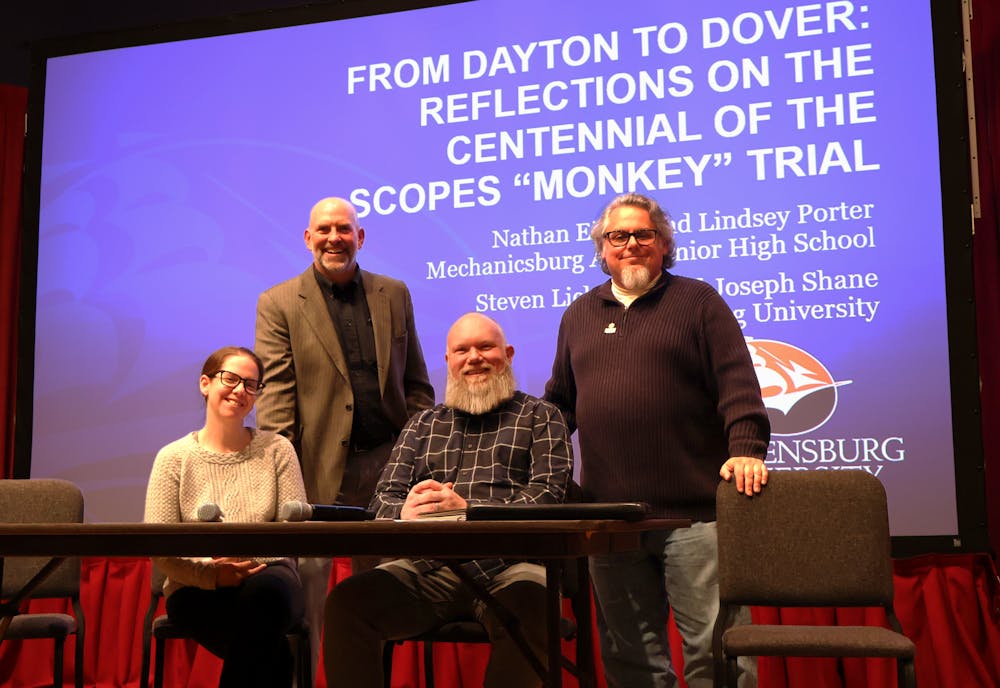
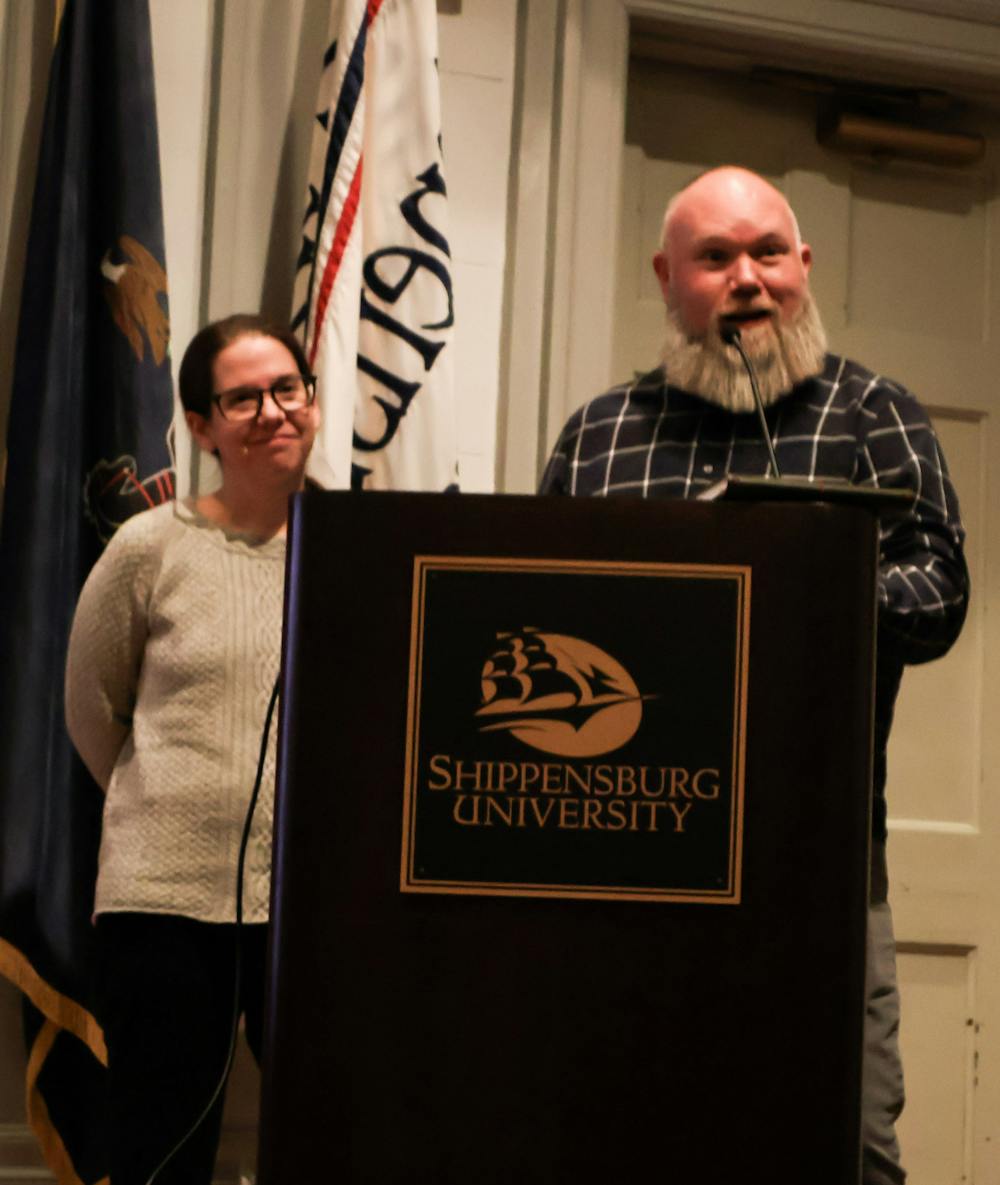
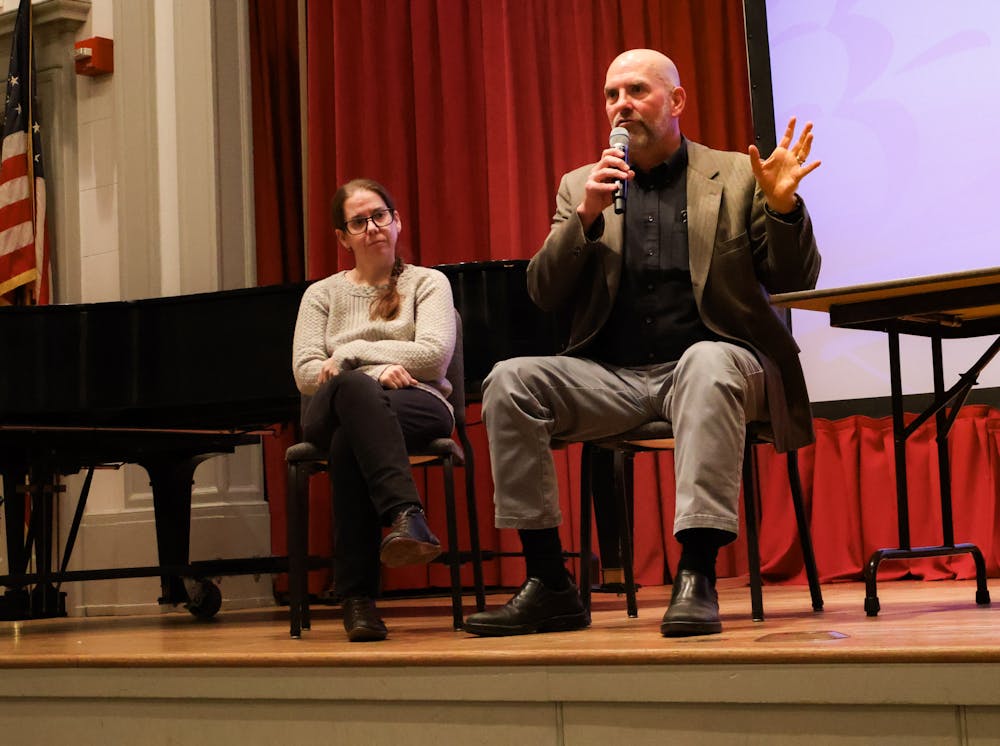
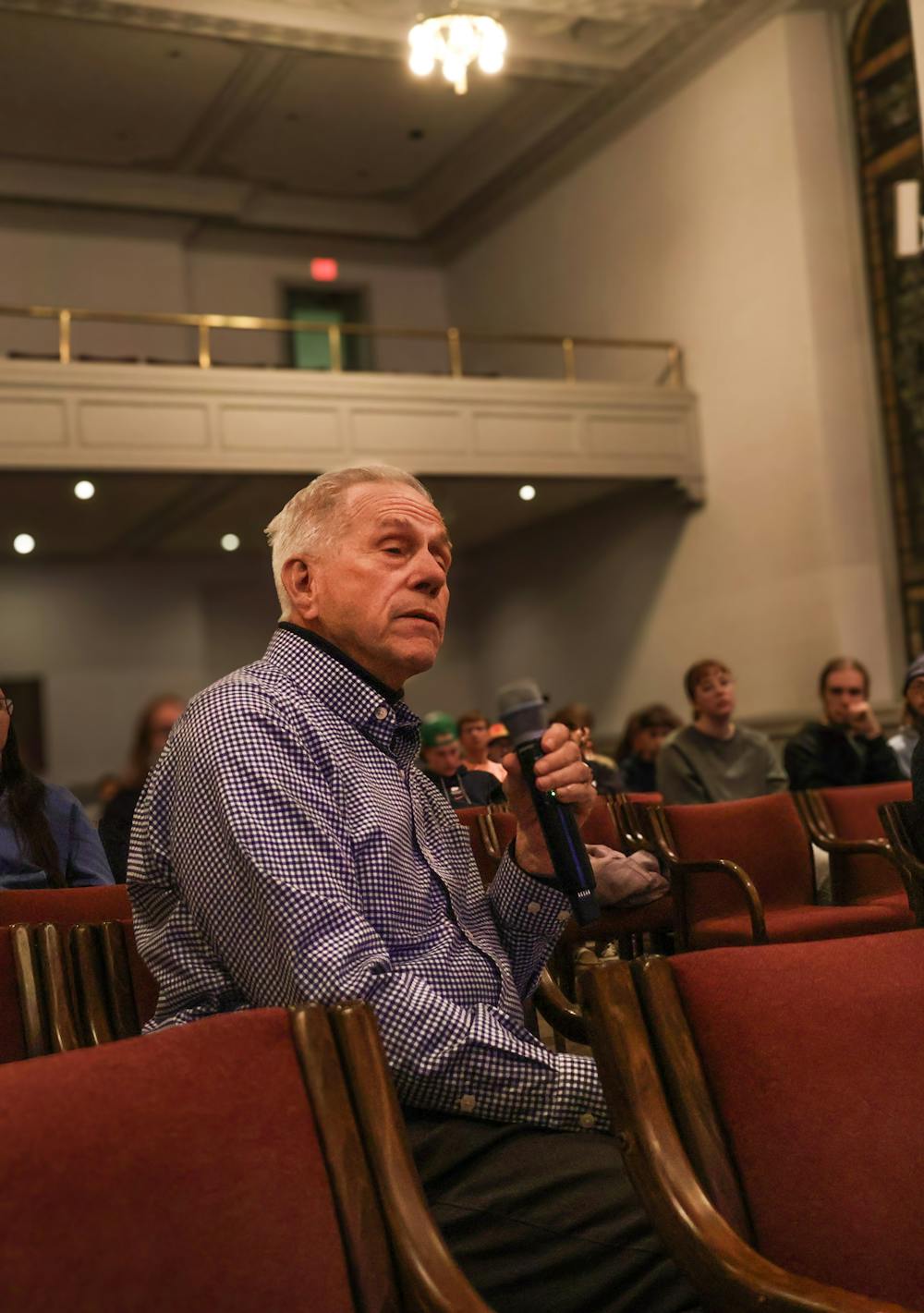
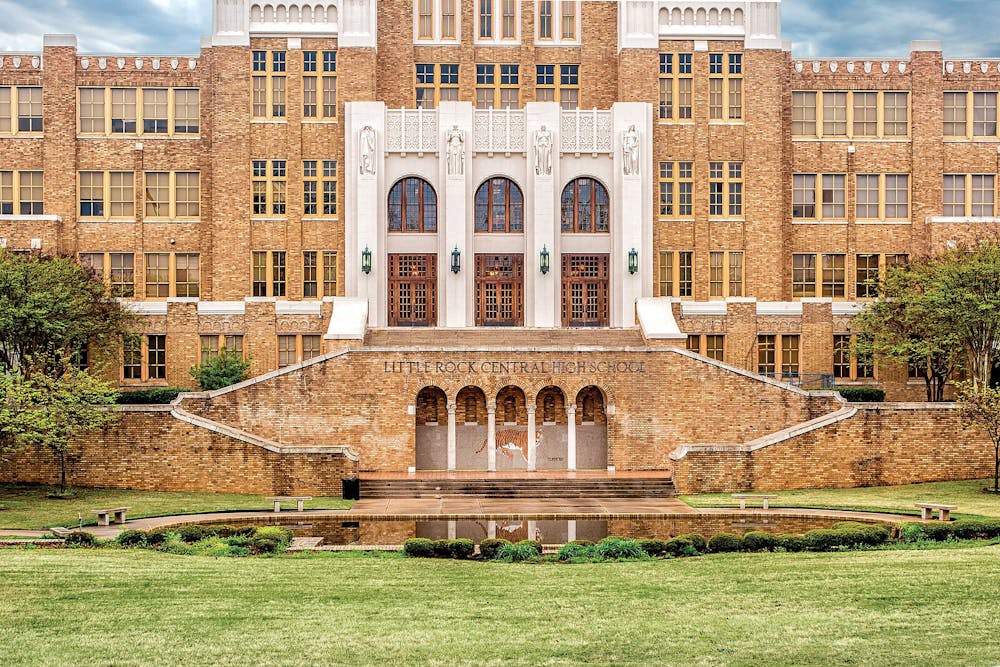
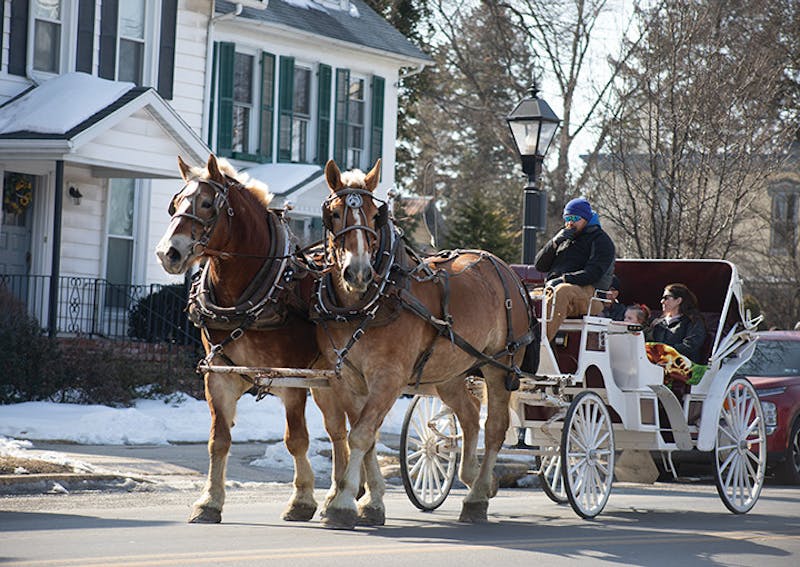
The Slate welcomes thoughtful discussion on all of our stories, but please keep comments civil and on-topic. Read our full guidelines here.